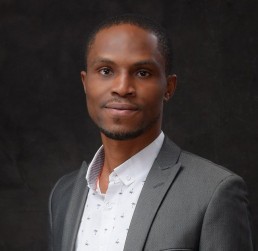About the Author
Century Favour is an Entrepreneur, Strategy, Technology, Marketing and Creative professional passionate about driving economic & social impact. Through his ventures (Endgame The Strategy Company, Do take action & centuryfavour.com) he works to ensure that People, Businesses, Governments & Non-Profits grow, succeed, achieve their strategic objectives, drive sustainable development and positively shape the future of the people & communities they serve.
About the Author
Century Favour is an Entrepreneur, Strategy, Technology, Marketing and Creative professional passionate about driving economic & social impact. Through his ventures (Endgame The Strategy Company, Do take action & centuryfavour.com) he works to ensure that People, Businesses, Governments & Non-Profits grow, succeed, achieve their strategic objectives, drive sustainable development and positively shape the future of the people & communities they serve.
